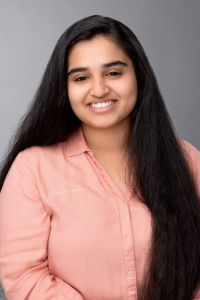Celebrating Pride Month: Embracing Identities in the South Asian Community
Published June 11, 2024
Inside OME

By Helan Paulose, OMS II, Touro College of Osteopathic Medicine Montana
Pride Month is a time of celebration, reflection and advocacy for the LGBTQ+ community worldwide. As someone from the South Asian community, I have witnessed firsthand the struggles that many face in embracing their identities. Our community, rich in cultural values and traditions, often finds it challenging to accept differences, particularly when it comes to gender and sexual identities.
Struggles of Coming Out in a Conservative Community
Recently, two close friends of mine came out to me. I talked to both of them, and they were both receptive to the idea of sharing their stories, even if it helps one other person. Their experiences shed light on the unique challenges faced by individuals in our community.
One of them shared her lifelong struggle with her identity, recounting years of shame and discomfort. Even as she confided in me, a long-time friend, she was cautious and fearful of my reaction. This hesitation indicates the pervasive fear of judgment that many in our community endure. However, as she says, self-acceptance is just the first step in this long journey.
Another friend spoke of the heartbreak she faced after finally coming out to her family and friends. Despite her numerous achievements, which had once made her family proud, she was met with rejection and disdain. Thankfully, she had a lot of friends who still stood by her side, but to her family, she had become a stranger. They went so far as to push medical treatment that would “correct” these thoughts and then others just distanced themselves further. This painful experience is not uncommon in the South Asian community, where acceptance of LGBTQ+ identities, remains a significant hurdle.
Conservatism and Cultural Values
The South Asian community is known for its conservative values and strong cultural ideals. While these traditions provide a sense of identity and belonging, they can also create barriers to acceptance. This resistance is rooted in a desire to maintain cultural purity and uphold family honor, often at the expense of individual happiness and authenticity. But today, we can finally see that times are slowly but surely changing.
The Role of Osteopathic Principles
As a DO candidate within my community, I am in a unique position to offer support and understanding. Osteopathic medicine emphasizes holistic care, focusing on the interrelationship of the body’s systems and the importance of a patient-centered approach. This philosophy aligns with the needs of LGBTQ+ individuals who often seek healthcare professionals who can offer compassionate, comprehensive care.
I want to be able to foster a supportive community within the broader South Asian context, where LGBTQ+ individuals can feel safe and accepted. This involves creating spaces where they can share their experiences without fear of judgment and receive the care they need. It also means advocating for greater acceptance and understanding within the community, challenging stereotypes and promoting education about gender and sexual diversity. Osteopathic principles, in fact, guide me to look beyond the physical symptoms and address the emotional and psychological aspects of health.
We need to help bridge the gap between traditional values and the need for acceptance. This involves open dialogue, empathy and a commitment to holistic care that respects both the individual and their cultural background.
The Osteopathic Pathway Toward Healing and Acceptance
Pride Month is a reminder of the ongoing struggle for acceptance and equality faced by the LGBTQ+ community, particularly within conservative communities like the South Asian community. Through the lens of osteopathic principles, we can offer a pathway to healing and acceptance, not just for individuals but for the community as a whole. By creating safe spaces and fostering understanding, we can celebrate the diverse identities that enrich our lives and strengthen our bonds.
As we celebrate Pride Month, let us commit to being allies and advocates, ensuring that everyone has the freedom to live authentically and proudly. Together, we can build a community where acceptance is the norm, and everyone is valued for who they are.
